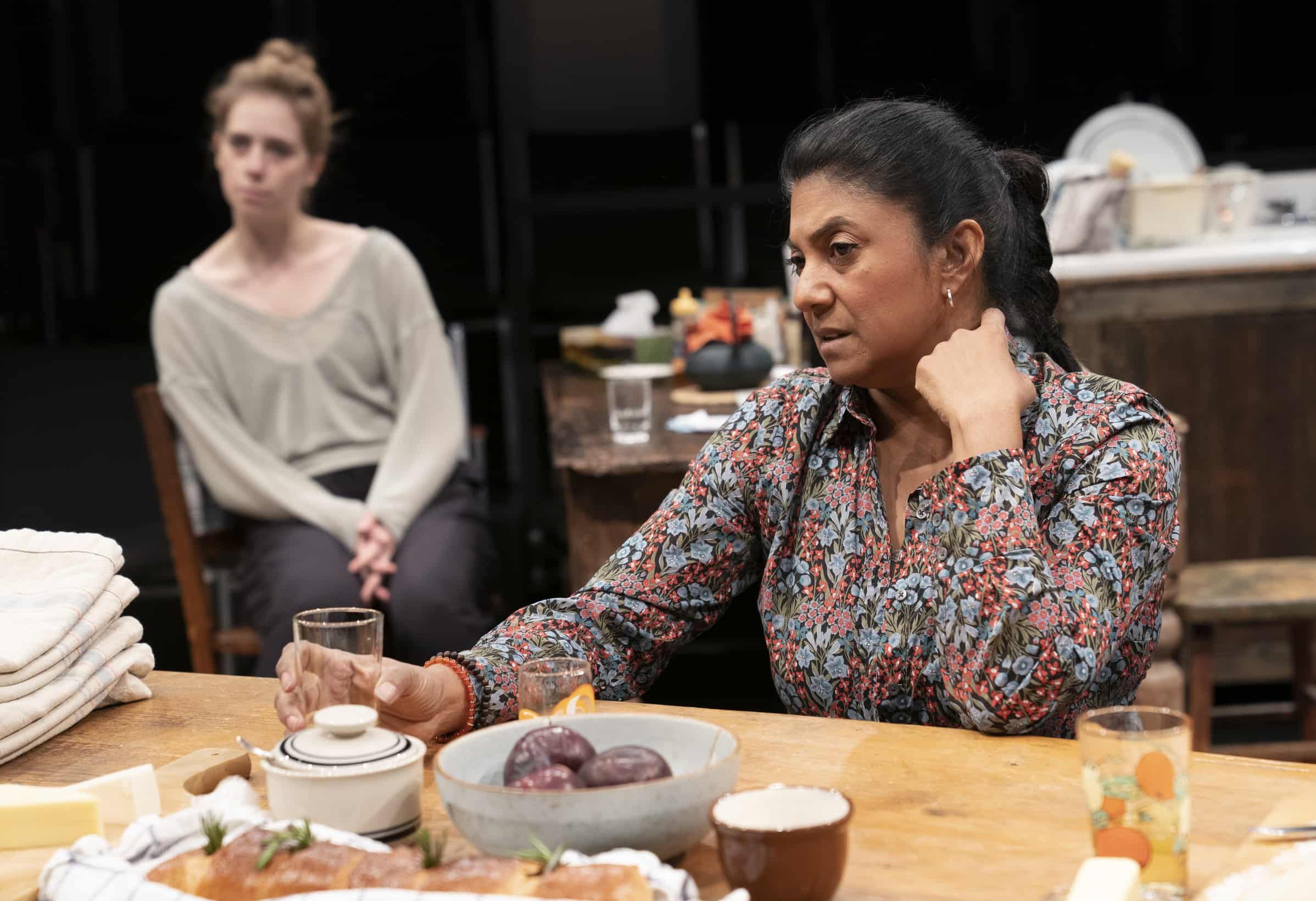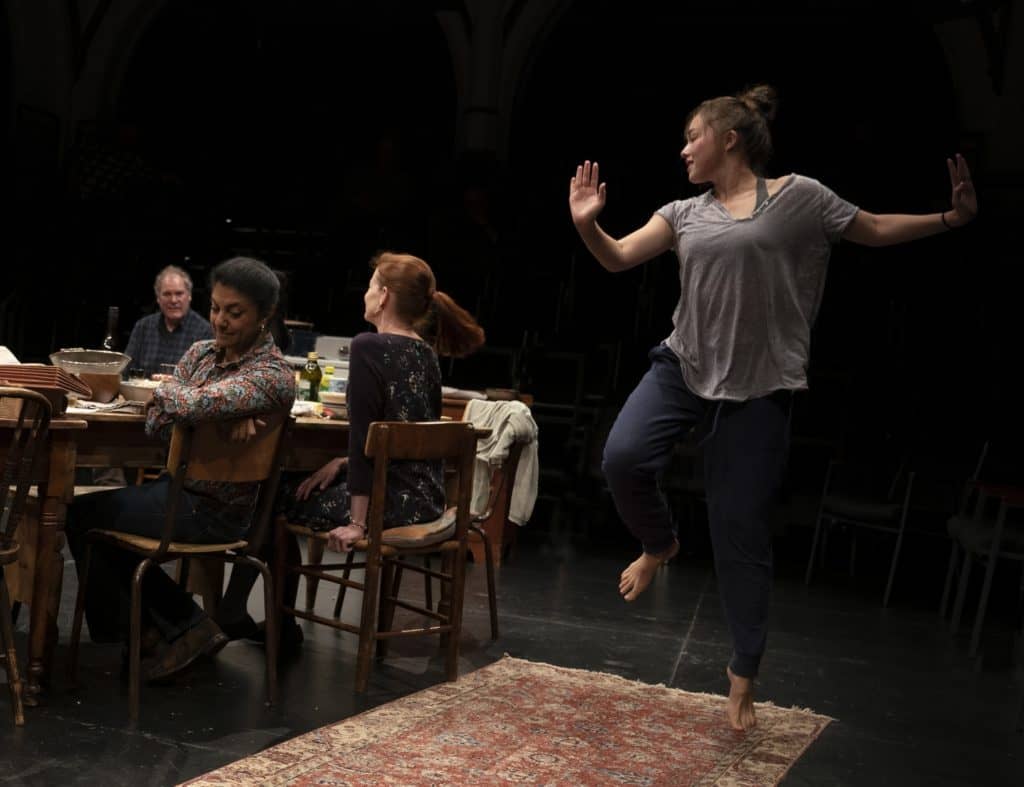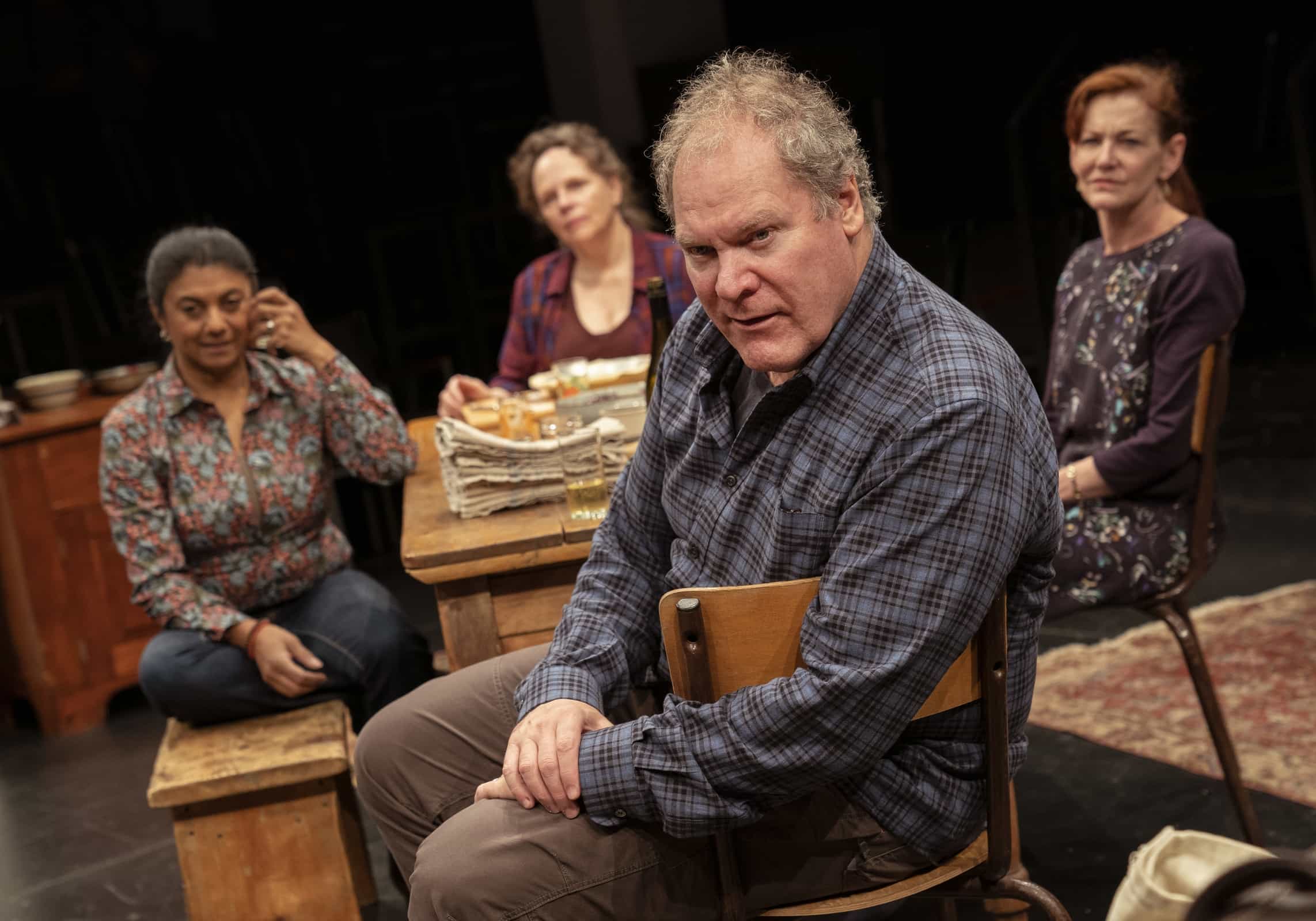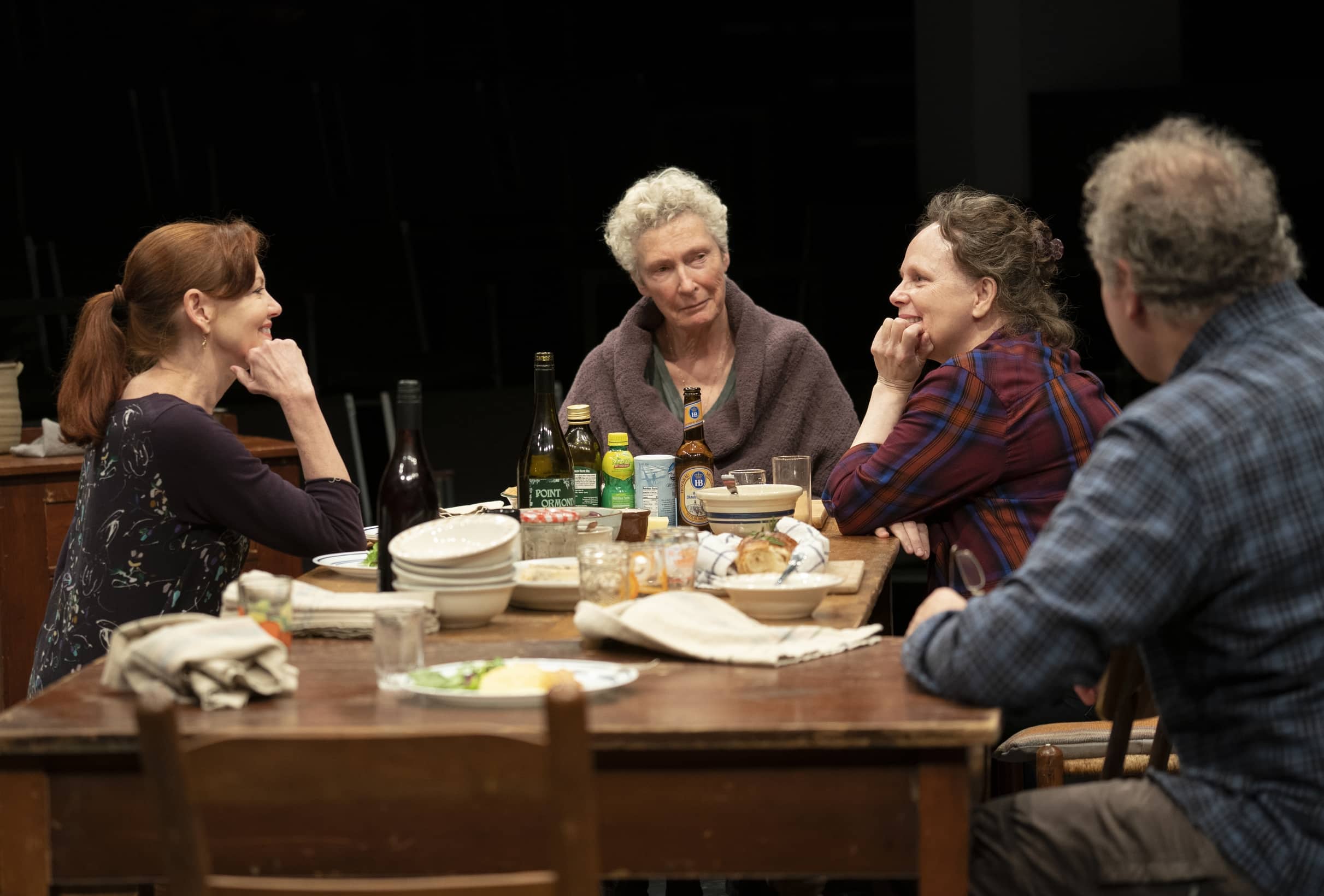There’s always a specific feeling as you enter a space built for performance theater. It’s not as casual as a movie theater, yet not quite as dynamic as an arena. History seems to cling to architectural details, washing over the slick, shiny tiled floor. An established sense of pride lingers in air.
As I entered The Public Theater on a Wednesday night to watch The Michaels, Tony Award-winning Richard Nelson’s newest body of work, I felt this same described energy. Yet, I also felt a wistful sense of integrity that you may forget exists in the world of performance art. Almost as if your presence is part of the experience.
And maybe rightfully so.
Following The Apple Family and The Gabriels, The Michaels takes place in the kitchen of dance choreographer Rose Micheal who is battling cancer, surrounded by family, loved ones, and friends in upstate New York. As stated in the The Michaels‘ program, the play “encapsulates an intricate, moving snapshot of modern-day America, illustrating the rich humanity within the incidental moments of one day.”

Seated in the southern part of The Public’s theater-in-the-round, I watched as audience members glided in-between levels, finding their seats, chatting, and peering down into the stage, which resembled the interior of a farm-style kitchen, equipped with a running sink, stove, oven, and table and chairs.
Indigo Sparks, The Michaels Production Assistant, said that she considers The Michaels to be an anomaly of play. “I don’t know if there’s ever been a play written with the history of modern dance as the primary influence before, but all of the references from Yvonne Rainer to Merce Cunningham caught my attention right away,” Sparks said.
Sparks, who is also a freelance dancer and artist, said she felt grateful to be able to have her passion and knowledge of dance recognized as a tool instead of something she had to keep separate from work. Sparks worked directly with Nelson to bridge the accessibility margin, specifically for younger artists who couldn’t afford the $60 it costs to attend the show.
“Richard recognized from the beginning the need to make the show more accessible in order to reach that audience,” Sparks said. “We collaborated with the Marketing team at The Public to create a code so that early career dance artists can access tickets at a discounted rate. We’ve sold over 50 tickets so far and it’s only growing. I really have Richard to thank for his fierce support on the matter. I just really appreciate his honesty.”
I too, agree that The Micheals is an anomaly. The play deliberately focuses on relevant social issues throughout the cast’s dialogue. Richard takes a bold approach to his playwriting. Some nights, the playwright and director may even alter the script hours before the show, a nod to current events while staying true to the time period of his work.
As I watched The Michaels, I was moved by the humor of the play, integrated with the character’s dialogue, intertwining with the storyline’s mold. The Michaels dancers, Charlotte Bydwell (Lucy Michaels) and Matilda Sakamoto (May Smith), moved beautifully and intricately across the stage, their dancing paralleling the floorplan of the kitchen, represented as the entirety of the stage environment.

“Charlotte [Lucy Michaels] and Matilda [May Smith] are such incredible people and performers,” Sparks said. “More importantly, their characters represent a large community of early career dance artists working in the city while trying to balance our unpredictable work lives with family.”
Sakamoto’s character, May Smith, alongside Bydwell (Lucy Michaels) portray the next generation following Rose Michael, the play’s protagonist. May is a dancer stranded between pursuing her artistic dreams in the footsteps of her aunt Rose, or staying rooted with her mother in Utica, New York.
“She’s [May’s] a shadow, or second generation to Rose,” Sakamoto said to me over the phone.
“What he [Nelson] wants is so different. He’s encouraging, and wants us to push forward,” the Los Angeles-native said. “It’s a natural, organic process.”

As someone who grew up in the performing arts space, I have yet to witness current events and politics woven into play’s storyline, evolving with our daily social climate. Nelson keeps dialogue exciting while encouraging audience engagement during the play’s 120 minute run time.
Richard’s method suggests there’s even more magic to be discovered when we bring those two worlds together,” Sparks said. “I think it‘s a really great way to keep yourself (as a playwright/director) and your actors engaged in the world.”
“When you’ve been rehearsing something for a while, I think it’s easy to feel like there’s a world you’re cultivating inside of the work, while the rest of the world is ‘outside’. I think the audience definitely feels that too, because if you’re up to date on politics it’s almost like being in on an inside joke,” Sparks said.
Whether part of an inside joke or part of the family, the connection I felt in the theater was undeniable. I was a part of the process by being part of the experience. I was part of the dialogue simply by existing. I was moved by the sincere notion that so many of us could relate to—art was made for us, put on for us—but was also influenced by us.
“I hope people walk away wanting to talk about what they experienced, emotional areas they don’t experience on a day-to-day basis,” Sakamoto said. A little moment in time that they’re never going to experience again.”
The Michaels runs from Oct. 19–Dec.1 2019. Tickets start at $45 and are available for purchase here.










